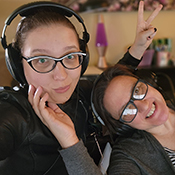 I was wrong.
I was wrong.
For the better part of a decade, my approach to communicating transgender medicine and science to the public has been premised on certain unexamined lay assumptions about what this wider audience struggles with and what they require to develop a useful understanding of these topics. For instance, when explaining the basis for the usage of puberty blockers in treating trans adolescents, I assumed that common misunderstandings of and opposition to this treatment stemmed from an unfamiliarity with its rationale and benefits, and that all that was needed was access to the right set of facts. I also assumed that prejudiced hostility toward trans people, and rejection of us as well as the facts that come to bear on our ability to live our lives, was primarily a matter of a lack of personal contact and familiarity, and that this stance would soften if a friend or loved one was trans – or if they at least had some exposure to our personal narratives and experiences.
Essentially, I believed that a lack of support for trans people was something of a special case, the result of a lack of specialized knowledge on a somewhat obscure topic along with bias against a minority that’s long been portrayed as incomprehensible at best and malign at worst. This year has provided the opportunity to test my assumptions on how the public engages with and acts on knowledge about medical topics. I realized I had been telling myself that the world would be more understanding and accepting of trans people if certain conditions were different and pushed to an extreme: If gender dysphoria affected almost everyone around us, if the consequences were more vivid and immediate than abstract statistics on increased likelihood of depression and suicidality, if everyone had skin in this game… obviously they’d manage to figure out, pretty quickly and out of sheer necessity, that gender dysphoria is real and serious and there are known effective approaches to it.
Right?
Instead, what I learned in 2020 is that the public’s grasp of transness or lack thereof may not be as special as I believed. The widespread failure to comprehend our lives and the relevant health-related information may simply be an instance of a more general inability or unwillingness to do so – even when a given health issue affects cis people and everyone around them, even when it’s a matter of life or death, even when basic facts are readily available and broadly agreed upon by medical authorities.
I was taken aback by the sheer incontinence with which so much of the public would accuse anyone and everyone of “child abuse” for supporting the medical standard of care for trans youth. Then I saw legions of rifle-toting wannabe warriors marching and plotting the kidnap of public officials over the closure of gyms and restaurants to prevent the spread of a highly contagious and lethal respiratory virus. I was impressed with the sheer pigheadedness of those who didn’t seem to understand that gender dysphoria is indeed a thing and that simply not being trans isn’t actually an answer or a solution. Then I witnessed everyone from the everyday public to those in positions of leadership misapply the assumptions of individualism to a matter of collective public health – as if the personal decision of whether or not to wear a mask only affects the person in question rather than everyone else they come in contact with and so forth onward throughout the population, as if their “personal decision” doesn’t have the real effect of altering the landscape and constraining others’ ability to exercise their own “personal decisions”. I realized that no matter how many flu seasons the public has lived through, many were now unable to generalize the basic principles of respiratory infections to a new but similar situation.
I realized how many people don’t have a useful understanding of which holes in their face they breathe through.
Transphobia as a specific prejudice obviously plays a role in the sometimes willful misunderstanding of trans people’s existence, circumstances, and health needs. But, like a surge-on-a-surge, it starts from an already strong foundation of tendencies to embrace misinformation – and act on it. Surveying a sample of the American public, Oliver & Wood (2014) found that 37% believed that the FDA is deliberately withholding cures for cancer and other diseases, 20% believed that health authorities know cell phones cause cancer and are doing nothing to stop this, and 20% believed that doctors know vaccines cause autism in children. Moreover, these weren’t inert beliefs – this affected their own willingness to engage in certain health behaviors, with those who endorsed more of these conspiratorial health beliefs being less likely to get a flu shot, less likely to use sunscreen, less likely to get an annual physical, and more likely to take herbal supplements.
The assumption from which all my work proceeded was that even as I and those I was trying to persuade held different positions, we were operating from a shared system of values and goals: the importance of reducing harm, the role of evidence in informing medical decisionmaking, and even just basic self-interest. What I’ve now learned is that this may not be the case at all. Many in our society prize freedom, construed as freedom from the slightest inconvenience of a mask or a closed Applebee’s dining room, as something not worth budging on even if this serves to prevent mass death, including their own. And if their own survival doesn’t compel their interest, what chance does mere evidence have?
If they don’t care about the bodies piled into mass graves and morgue trucks in their own neighborhoods, why would they care about the well-being of one live trans person no matter our proximity?
I don’t know where we go from here other than to continue educating the public on relevant health information. If there were known effective solutions to what appears to be a values problem, individuals far more competent and experienced than me would already be deploying them in the fight against an immediate threat facing the entire planet. Until then, this is just another loss of 2020: hope. ■



